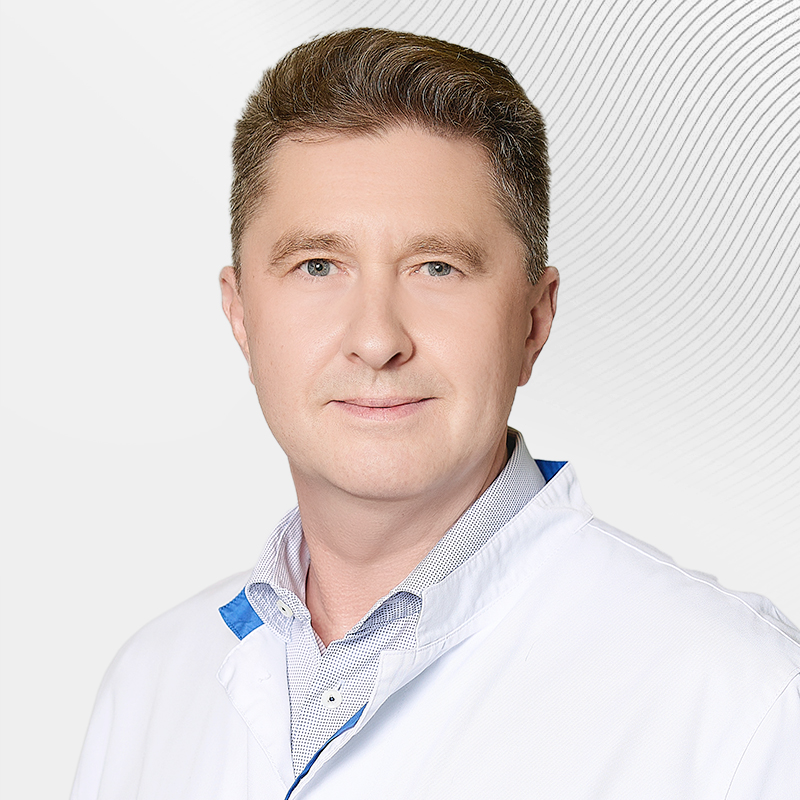DISEASES of the prostate gland
Transrectal ultrasound examination of the prostate gland (TRUS)A modern, informative and safe method for assessing the state of the prostate. With the help of this type of research, it is possible to detect prostate pathologies even at the early stages of development, and to test the effectiveness of treatment. The procedure is performed on an outpatient basis (without a hospital), requires minimal training, and is one of the main diagnostic methods in the field of andrology.
Transrectal ultrasound is based on the use of ultrasound waves for detailed examination and examination of the prostate gland in men. Unlike traditional ultrasound, the sensor is inserted through the rectum, which gives a more detailed image. The examination is painless and is performed without anesthesia. The procedure according to the indications can be performed an unlimited number of times, no recovery is required.
Which is more informative: ultrasound, conventional ultrasound or MRI of the prostate?
Regular (transabdominal) Ultrasound is done through the abdominal wall. The accuracy of this method is lower than that of ultrasound, since ultrasound waves pass through a larger number of tissues. It is prescribed if there are contraindications to transrectal examination or if the patient refuses it.
With the help of TRUZI, doctors are able to fully examine the prostate gland, since the ultrasound sensor is located at a close distance from the organ. The veins and arteries of the prostate are clearly visible. Ultrasound with Dopplerography is one of the main diagnostic methods for prostate tumors.
If neoplasms have been identified after ultrasound, the doctor may prescribe an additional MRI scan. This method makes it possible to clarify the diagnosis, in particular, to more accurately determine the localization, structure and size of the formation.
Indications for labor
A urologist-andrologist may recommend undergoing prostate surgery for:
-
changes in laboratory tests: increased levels of PSA (prostate specific antigen), deviation of spermogram data, urine tests;
-
symptoms of damage to the genitourinary system: infertility, pathological impurities in urine or semen (blood, pus), pain in the lower abdomen and pelvic area, pain during defecation, etc.
-
suspected inflammation, prostate adenoma, and other neoplasms in prostate tissue;
-
symptoms of orchitis, varicocele, and other diseases of the scrotum;
-
assessment of the effectiveness of treatment;
-
routine examination of men over 40 years old.
In order to identify the problem in a timely manner and start treatment, it is necessary to consult a doctor when the first symptoms occur.
Symptoms requiring attention:
-
burning or pain in the groin area;
-
problems with erection;
-
weakening of the urine stream, frequent or difficult urination;
-
the feeling that the bladder does not empty to the end;
-
strange discharge from the urethra;
-
blood in urine or semen.
The presence of these symptoms does not mean that you definitely need to undergo prostate surgery, the final decision is made by the doctor. But this is an unambiguous signal: something is wrong in the body, so a visit to the doctor should not be postponed.
For men at risk of developing prostate cancer, we recommend annual transrectal ultrasound for preventive purposes.
This category includes:
-
men over 40 years old;
-
people who lead a sedentary lifestyle;
-
working in harmful industries, under chronic stress;
-
people whose close relatives had prostate malignancies.
Contraindications to the examination
There are absolute and relative contraindications to conducting the study. It is strictly forbidden to perform labor if the patient has previously had a rectal removal or a tumor diagnosed. Relative contraindications are considered to be:
-
exacerbation of hemorrhoids;
-
severe course of anal fissures;
-
tumors of the rectum in the decay stage;
-
recent surgical procedures on the rectum.
During the consultation, the EMC clinic doctor will determine whether you can have a transrectal ultrasound of the prostate, give recommendations on treatment if there are temporary contraindications, and make an appointment for a repeat appointment.
How to prepare for the TASK
The preparation is minimal, but all recommendations must be strictly followed.: this will increase the informative value of the study.
1-2 hours before the scan, you need to drink 500 ml of still water, and you should not empty your bladder until the end of the study. We recommend drinking regular water, as some drinks (tea, coffee, soda) can irritate the walls of the bladder and cause discomfort. Psychological preparation is equally important. Ask all the questions to the doctor in advance: fear can cause anal spasm. If you're worried anyway, you can use lidocaine gel for local anesthesia during the procedure.
Methodology
During the ultrasound diagnosis, the patient lies on a comfortable couch on his side, with his knees pressed against his stomach. The doctor inserts a sensor for TRACTION through the anus to a depth of about 5 cm. At the same time, there may be slight discomfort comparable to a finger rectal examination. A special gel facilitates the insertion of the instrument and makes the process as painless as possible.
The image of the prostate and nearby structures is broadcast on the monitor screen. The specialist examines the results obtained, changing the angle of the sensor if necessary. The average duration of the study is 5-10 minutes. Next, the doctor carefully removes the sensor and writes a report, which is issued to the patient's hands along with the pictures.
Does it hurt to make FRIENDS?
The procedure is absolutely painless. A small sensor is used for the study, which does not cause discomfort to the patient when inserted into the rectum. In order to minimize unpleasant sensations, the sensor is lubricated with a lubricant.
How necessary is this?
Transrectal ultrasound allows you to identify pathologies in the early stages and start treatment on time. If the doctor referred you for this examination, it means that he has good reasons.
What can be diagnosed
With the help of ultrasound transrectal examination of the prostate gland, doctors will detect in time:
- Prostate adenoma (benign hyperplasia, BPH). It looks like an increase in the size of the prostate gland, which leads to the development of urinary disorders up to acute urinary retention. It is mainly diagnosed in men over 50 years of age.
- Prostatitis. It is accompanied by the development of inflammation in the tissues of the prostate gland. The main manifestations of the disease are pain in the lower back and groin area, rapid, painful and difficult urination.
- Prostate cancer. It is considered the most common cancer in urology in men over 50 years of age. Doctors note an annual increase in morbidity, which confirms the importance of annual preventive checkups and the need for routine maintenance.
In addition to the prostate, the condition of the seminal vesicles, rectum and bladder is examined during the examination. The specialist determines the size, structure, structural features, location of the organ, the presence of pathological formations in it and their characteristics. According to the diagnostic results, the treatment tactics will be chosen - conservative therapy or surgical intervention.
How can I decipher the results of the TRUS?
The transcription is done only by the doctor. A layman will not be able to correctly interpret the information received from the sensors. If pathological changes have been detected, additional examinations will be scheduled. Among them:
-
MRI scan;
-
spermogram;
-
PSA analysis;
-
prostate biopsy, etc.
Recommendations for prevention
To maintain prostate health, we recommend:
- Lead an active lifestyle.
- Avoid promiscuous sexual relations.
- Follow your diet, excluding fatty and spicy foods.
- Avoid hypothermia and overheating of the genital area.
- Regularly visit a urologist for routine checkups.
Where can I get a prostate ultrasound?
We invite you to visit the leading international multidisciplinary EMC clinic. This is a medical center where you can not only get a massage, but also consult with specialized specialists face-to-face and remotely, get appointments and undergo an individual treatment program. Examinations are performed on the latest ultrasound devices of the Toshiba, Aplio, Logiq, and General Electric class. The clinic staff does everything possible to make the procedure as comfortable as possible for the patient.
For more information, please call +7 495 933-66-55 or make an appointment online. We work around the clock seven days a week.
Doctors
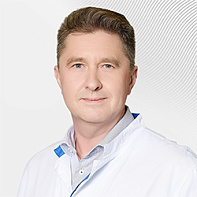
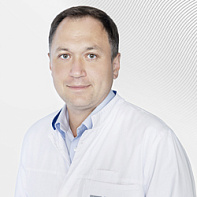
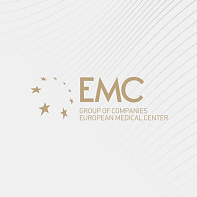
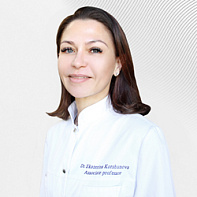
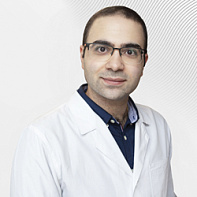
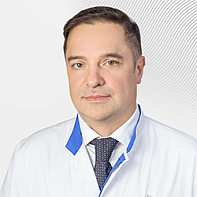
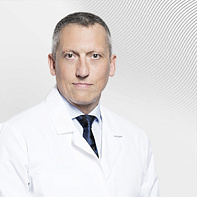
.jpg)
.jpg)
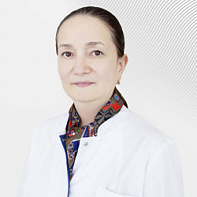
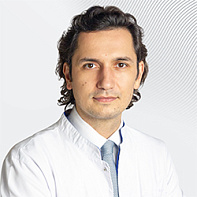
.jpg)
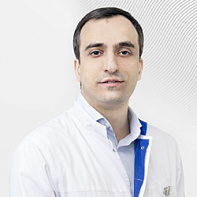
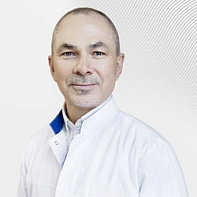
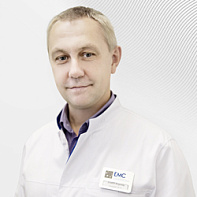
- He is a recognized expert in endoscopic urology.
- He has performed more than 5,000 endoscopic and open surgeries on the organs of the genitourinary system
- Member of the Russian Society of Urology, the Russian Society for Endourology and New Technologies, the European Urological Association, the World Endourological Society
